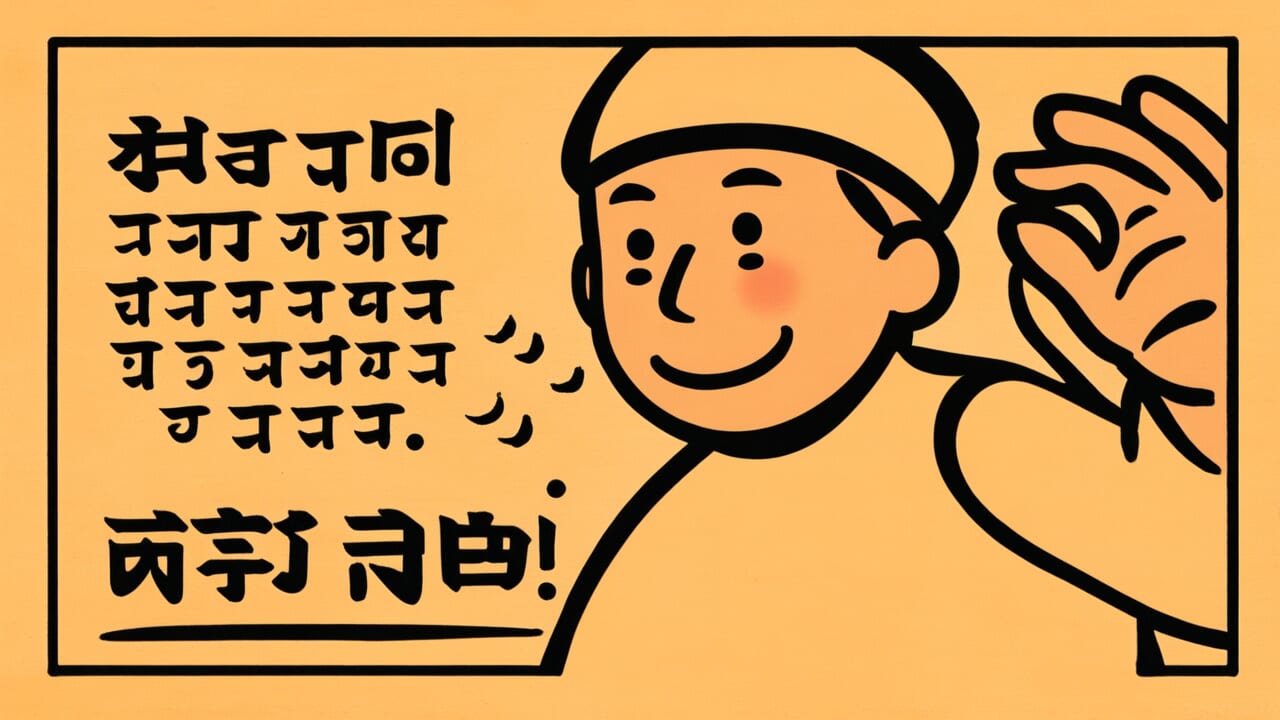Cultural Context
This Hindi proverb reflects a core principle in Indian philosophy called karma. The concept teaches that positive intentions create positive outcomes.
Wishing well for others is seen as a virtuous act. Indian culture emphasizes interconnectedness between all people and their actions.
The proverb connects to dharma, the moral duty to act righteously. Hindu and Buddhist teachings stress that goodwill generates merit. This merit eventually returns to benefit the giver.
The idea appears in daily blessings and prayers across Indian households.
Parents and elders commonly share this wisdom with younger generations. It reinforces community harmony and collective wellbeing over individual gain.
The teaching appears in folk tales, religious stories, and everyday conversations. This universal message resonates across India’s diverse regional and religious communities.
Meaning of “Whoever wishes well for others, good happens to them too”
The proverb states a simple truth about human goodness and reciprocity. When you genuinely wish happiness for others, good things happen to you.
The focus is on sincere intention, not superficial gestures or expectations.
This works in practical ways across different life situations. A colleague celebrates a coworker’s promotion without jealousy and later receives support.
A neighbor helps another family succeed and builds lasting community connections. A student encourages classmates during exams and creates a supportive learning environment.
These actions create positive relationships that naturally benefit everyone involved.
The proverb emphasizes genuine goodwill, not strategic kindness for personal gain. Authentic care for others creates trust and strengthens social bonds.
People naturally want to help those who show genuine concern. The wisdom suggests that generosity of spirit enriches both giver and receiver.
This creates a cycle where positive intentions multiply through communities.
Origin and Etymology
It is believed this wisdom emerged from ancient Indian philosophical traditions. Karma theory developed over thousands of years in Hindu and Buddhist texts.
The concept that actions and intentions have consequences shaped Indian moral thinking. Oral traditions carried these teachings through generations before written records existed.
Village elders and religious teachers transmitted this wisdom through stories and sayings. The proverb simplified complex philosophical ideas into memorable everyday language.
Parents used it to teach children about kindness and community values. Regional variations exist across India’s many languages and cultural groups.
The core message remained consistent despite different wordings and contexts.
The proverb endures because it addresses a universal human experience. People observe that kindness often returns in unexpected ways. The simple phrasing makes it easy to remember and share.
Modern Indians still reference this wisdom in family discussions and social situations. Its relevance transcends religious boundaries and speaks to basic human decency.
Usage Examples
- Teacher to Student: “You helped your classmate study and now you both passed the exam – Whoever wishes well for others, good happens to them too.”
- Friend to Friend: “She donated to charity and unexpectedly received a job promotion this week – Whoever wishes well for others, good happens to them too.”
Lessons for Today
This wisdom matters today in our increasingly competitive and individualistic world. Social media and modern culture often emphasize personal success over collective wellbeing.
The proverb reminds us that genuine goodwill creates healthier communities and relationships.
People can practice this by celebrating others’ achievements without comparison or envy. A manager who supports team members’ growth builds loyalty and productivity.
Friends who genuinely encourage each other create lasting supportive networks. The key is authenticity, not performing kindness for social approval.
Small acts of genuine goodwill compound over time into meaningful connections.
The wisdom works best when intentions are pure and expectations are released. Wishing others well should not become transactional or calculated.
The benefit comes naturally through strengthened relationships and community trust. When we focus on others’ happiness, we often discover our own.



Comments